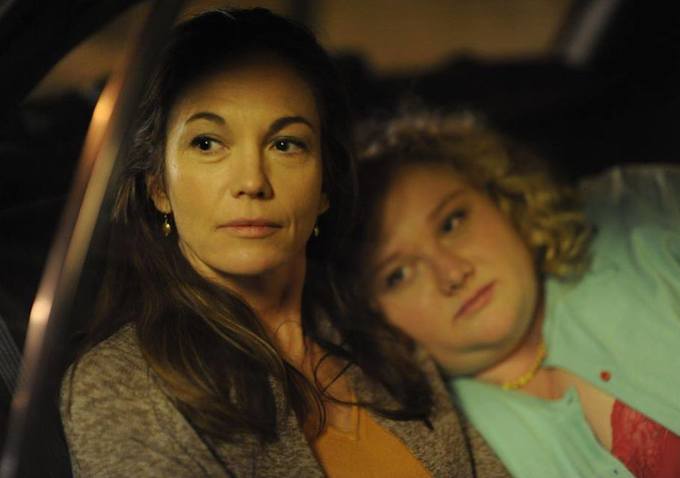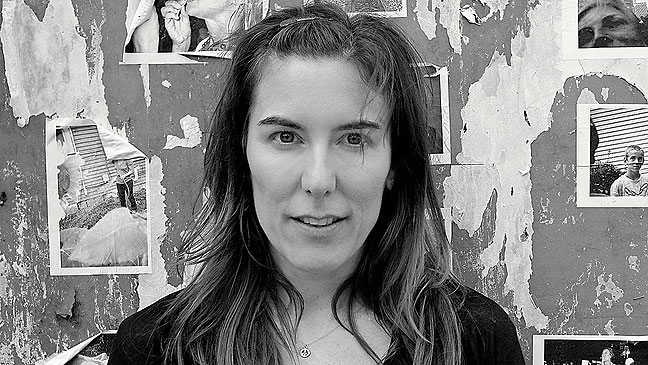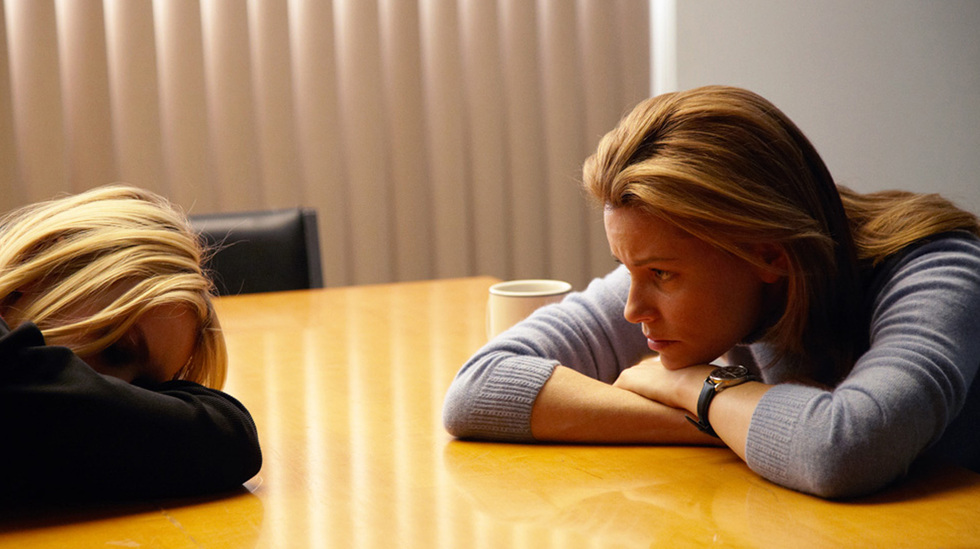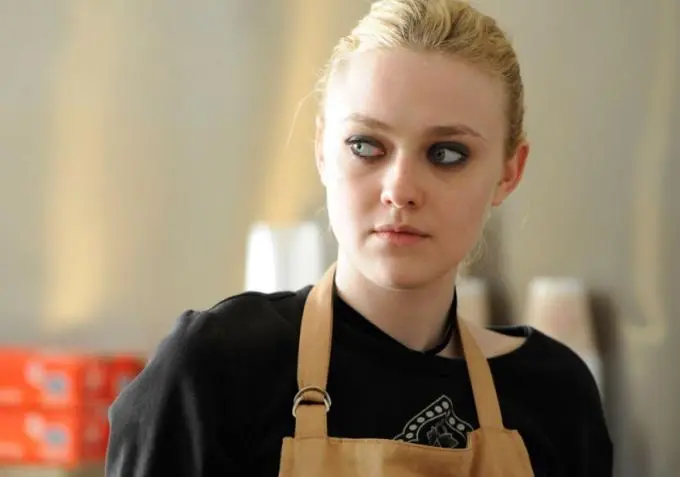Amy Berg is one of the biggest names in documentary filmmaking today. Her first film, Deliver Us From Evil, about the Catholic Church’s sex abuse scandal, earned Amy an Oscar Nomination for best documentary. She followed that huge accomplishment up with West of Memphis, about the West Memphis Three; the upcoming Prophet’s Prey, about Warren Jeffs; and An Open Secret, about sex abuse in Hollywood.
But Berg is also moving into narrative filmmaking, and makes her debut with the crime drama Every Secret Thing, a mix of Gone Girl and Mildred Pierce starring Diane Lane, Elizabeth Banks, Dakota Fanning, Danielle MacDonald, Nate Parker, Common, and Renee Elise Goldsberry (oh, and it’s produced by Frances McDormand, and written by Nicole Holofcener). Berg spoke with us about taking this creative leap, and her very dark and challenging new film.
Lesley Coffin (TMS): I attended the premiere of Every Secret Thing, and producer Frances McDormand made a great comment about how she was drawn to the novel on which the film is based because she found the number of despicable women in the text to be refreshing. We you also attracted to the irredeemable and despicable women at the center of the film?
Berg: For me, that was one of the great selling points of the script, and ultimately the film. Because we are so used to seeing women given the Hollywood happy ending. And we’ve been having a great, ongoing conversation about female filmmakers and women in film, and the conversation has to include the need for flawed female characters. Flawed men are celebrated in cinema, but we see the opposite with female characters in films.
TMS: Do you have any idea why having a female anti-hero is such a hard sell?
Berg: Across the board in society, women are still supposed to be a certain way. To look a certain way and talk a certain way. And it is intimidating in an industry run by men to show “real women” who are complicated. Women are still expected to represent wife and mother, and the characters in Every Secret Thing shows aren’t cookie-cutter examples of that mold.

TMS: And you really take on motherhood and the damaging effect that relationship can have. We’ve seen a lot of dysfunctional father-and-son films, but fewer dysfunctional mother-and-daughter films.
Berg: And that relationship in the film touches on such an interesting theme. I think that one of the most interesting things is the idea of having a child that you don’t think fits, and how far you would go to make them more like you, when they are rebelling against you every step of the way. The relationship between Diane Lane’s character and Danielle MacDonald’s character is so interesting because of that. We always hear about soccer parents, pushing their kids to be exactly what they wanted them to be or live vicariously through them. And this really flips that idea on its head, because she can’t see what her daughter really needs and how damaged she is. And she messes her up to a greater degree because of that.
TMS: Did you study any real crimes to decide on the film’s look and how to play out the police procedural aspects of the film?
Berg: Yeah, there were a couple of interesting cases I drew from. One in the UK was a case with similar themes, and there was actually a film made about that event called Boy A. It was the story of two working class boys who murdered a baby, and the effect it had on their community. So I definitely drew from that, and other cases. I’d just finished West of Memphis which, of course, has some similar themes too, and addresses what it is like to re-enter society after prison.
TMS: I always hear that with documentary, you really find your story in the editing. Did telling the story out of chronological order have the same effect?

Berg: Yeah, editing it that way gave me a lot of flexibility in how I wanted to tell the story. We tried editing it many different ways before landing on this specific cut.
TMS: Nicole Holofcener wrote the screenplay and was going to direct the film. What was it like taking over a project that already had a script written by someone else?
Berg: We had to trim the script because I think it was 148 pages. But that is kind of great to go into a project that has more material than you need. And Frances and I spent months working on the script together, but we had a 21-day shoot and really low budget, so it was really hard to get everything done on time. In documentary, I’m used to shooting, editing, and then deciding what else I have to shoot. There is this kind of never-ending schedule in documentary filmmaking, so having a budget and schedule to follow was a challenge. But I was lucky enough to have a great creative team and we came in on time and on budget.
TMS: Was it a big adjustment to have to direct actors?
Berg: That was one of the big challenges. The way we did our prep was during “rehearsals,” which I say with air quotes because we weren’t really rehearsing, was by talking out each character’s backstory. So we always knew where we were coming from and where we were going. And as you mentioned with editing, the shooting is out of order, because you shoot based on location. So it was important to understand the characters.

TMS: Along with the issue of gender, there is also the issue of race in the film, and its connection to the crimes are revealed later in the film. Were you at all concerned about how you were representing race in this type of community?
Berg: The film is really more about socio-economic status than race, but this is the type of neighborhood our characters would look like today. And the book was written more than 10 years ago, so there was even more of a dividing line, and I think we have come a long way in the past 10 years. But everyone we cast felt very natural, so I didn’t want to point it out too much. Because it really is about one side of the tracks and the other side of the tracks.
TMS: Did your filming location have the kind of socio-economic divide you show in the film?
Berg: To be honest, the film was originally set in Baltimore, and we tried to shoot there, but couldn’t because of the tax credit. So there is a little more of a division there, as we see today, than in say Queens, which is where we shot the film. So that was another reason we toned it down.
TMS: I learned just this year that there is a 10% higher number of female documentary filmmakers than female narrative directors. Did you find it harder to get this movie made than your documentaries?
Berg: It’s just such a completely different experience. With narrative films you have to have everything in line; budgets, crews, cast, locations, because you’re on such a tight schedule. But with documentaries you can start, get a little money, film, get a little more money, shoot again, until it’s finished. It was a completely different way of making films, so I can’t even compare the two, although I have made docs which were completely funded from the beginning, but that is less common.
Lesley Coffin is a New York transplant from the midwest. She is the New York-based writer/podcast editor for Filmoria and film contributor at The Interrobang. When not doing that, she’s writing books on classic Hollywood, including Lew Ayres: Hollywood’s Conscientious Objector and her new book Hitchcock’s Stars: Alfred Hitchcock and the Hollywood Studio System.
–Please make note of The Mary Sue’s general comment policy.–
Do you follow The Mary Sue on Twitter, Facebook, Tumblr, Pinterest, & Google +?









Published: May 17, 2015 12:15 pm